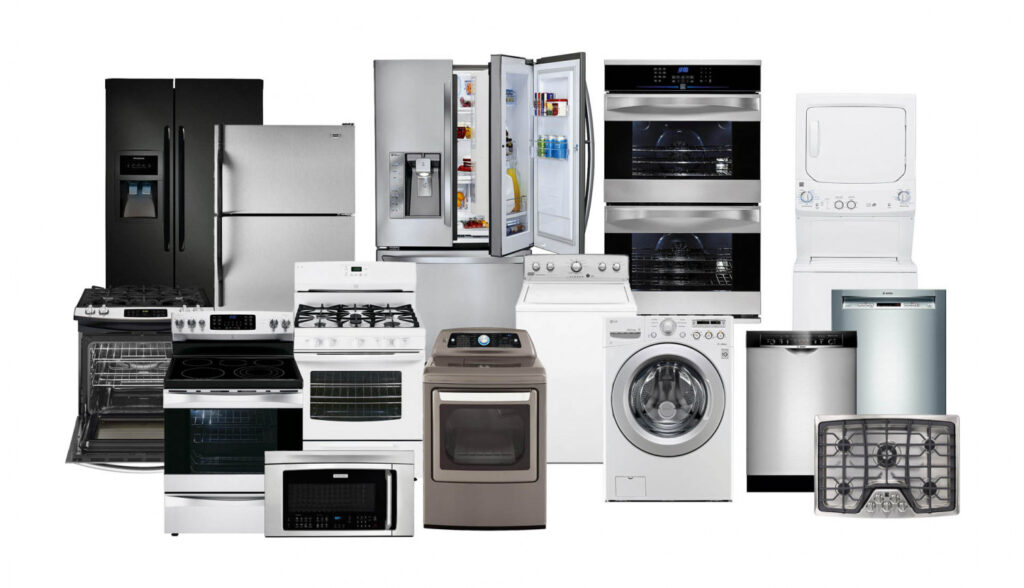Washing Machine Repair Tips: Your Ultimate Guide to Fix Common Issues at Home
In today’s world, nobody has time or patience for a malfunctioning washing machine. Whether it is dirty laundry accumulating or surprise leaks destroying your floor, washer problems can be both worrying and expensive. But is it possible that you could fix most of these problems on your own, without calling in a repairman right away?
That’s where this in depth guide is needed. Whether your spin cycle is noisy, your drum won’t budge, or you get weird leaks under your washer, our Washing Machine Repair Tips is here to assist you. This blog is written for homeowners who would like to regain control over their appliance issues and discover simple yet effective repairs at home.
Not only will you be saving on repair costs, but you’ll be prolonging the life of your machine and perhaps even impressing a couple of people with your handiness. Let’s get into the realm of wiser, do it yourself appliance maintenance and learn the repair secrets every homeowner should be aware of in 2025.
Why Knowing Washing Machine Repair Tips is Important
Save money on costly technician calls
Avoid water damage or mold growth
Prolong the life of your washing machine
Feel more confident in tackling home maintenance jobs
Safety First: What to Do Before You Start
Before picking up your tools, take these basic safety precautions:
Turn off the washing machine to avoid electrical shock
Cut off water supply to prevent flooding
Wear gloves and ensure your hands are dry
Keep your tools within reach
Consult your washer’s user guide
7 Everyday Washing Machine Issues and How to Resolve Them
1. Washing Machine Won’t Turn On
Check if the outlet is functional
Check the power cord for damage
Check your home’s circuit breaker
Test another wall outlet
2. Water Not Filling Up
Check the water inlet valve
Inspect hoses for twists or blockages
Make sure the water supply is on
Check water pressure settings
3. Drum Not Spinning
Re distribute the load for improved balance
Check and replace the drive belt if damaged
Check the motor coupling for damage
Check for control board problems
4. Unusual Noises During Wash Cycle
Take coins or items out of the drum
Check shock absorbers and bearings
Verify loose components or drum misalignment
5. Leaking Water
Tighten hose connections
Check door gasket for tears or dirt
Clean drain filter
Replace worn seals
6. Washer Not Draining
Clean or replace drain pump filter
Clear clogged drain hose
Check pump motor for malfunction
Check the lid switch
7. Bad Smell From Drum
Leave door open after washing
Run hot cycle with vinegar every month
Employ baking soda as a natural deodorizer
Utilize washing machine cleaner tablets
Looking for more expert guidance? Don’t miss our complete microwave repair tips to fix common issues quickly and safely.

When to Hire a Professional to Fix the Washing Machine
Most are DIY reparable, but call a pro if:
There is an electrical odor or sparks
Error codes remain even after resets
Internal components such as motors or PCB boards are involved
Hidden leaks and difficult to track leaks
Preventive Maintenance Tips to Prevent Repairs
Regular care can keep your washer in top shape:
Run a cleaning cycle once a month
Wipe down the rubber gasket after use
Avoid overloading the washer
Use the right type and amount of detergent
Check and clean the lint filter regularly
Top Tools You’ll Need for DIY Washing Machine Repair
Stock your toolbox with:
Screwdrivers (Phillips and flathead)
Wrenches and pliers
Multimeter for electrical checks
Flashlight
Towels and a small bucket for water spills
Why DIY Washing Machine Repair Is Growing in 2025
Due to improved access to online tutorials and inexpensive tools, homeowners are now more likely to be fixing their own appliance issues particularly washing machine issues. Not only does DIY repair not just give you empowerment, but also a better understanding of how your appliance operates. Whether it’s replacing a drain hose or unjamming a stuck filter, these easy Washing Machine Repair Tips can prevent costly service visits and minimize downtime. In a world where savings and convenience reign supreme, knowing a few clever repair tricks can make all the difference in the ease of operation of your home.For additional expert approved washing machine repair tips, check out this detailed guide from Gulf Coast Appliances.

FAQs About Washing Machine Repair Tips
Q: Can I fix a washing machine myself?
A: Yes most small problems such as clogs or drum imbalance are minor repairs with the proper washing machine repair tips.
Q: How frequently should I clean my washing machine?
A: If possible, every month with hot water and vinegar or commercial cleaning products.
Q: Are top loaders simpler to repair than front-loaders?
A: Usually yes top loaders are more accessible and easier to diagnose.
Final Thoughts Washing Machine Repair Tips
Maintaining your washing machine doesn’t have to be intimidating. With the proper washing machine repair tips, you can fix most frequent problems at home in a quick and safe manner. Having a washing machine is not just a matter of convenience, it is also about efficiency, cleanliness, and maintaining your daily life in perfect condition. But as with any appliance, your washer sometimes requires some TLC to function at its best. With the proper care and a few handy washing machine repair tips, you can tackle anything from a small leak to drainage problems and even an unbalanced drum.
Whether you’re repairing a little issue today or learning how not to have a larger one tomorrow, each repair you make brings you closer to being a capable, confident homeowner. So when your washer gets in your way next time, remember you’ve got this.
Keep in mind that being proactive with maintenance is the key to preventing expensive repairs. These washing machine repair tips are your first step towards a hassle free laundry day.




